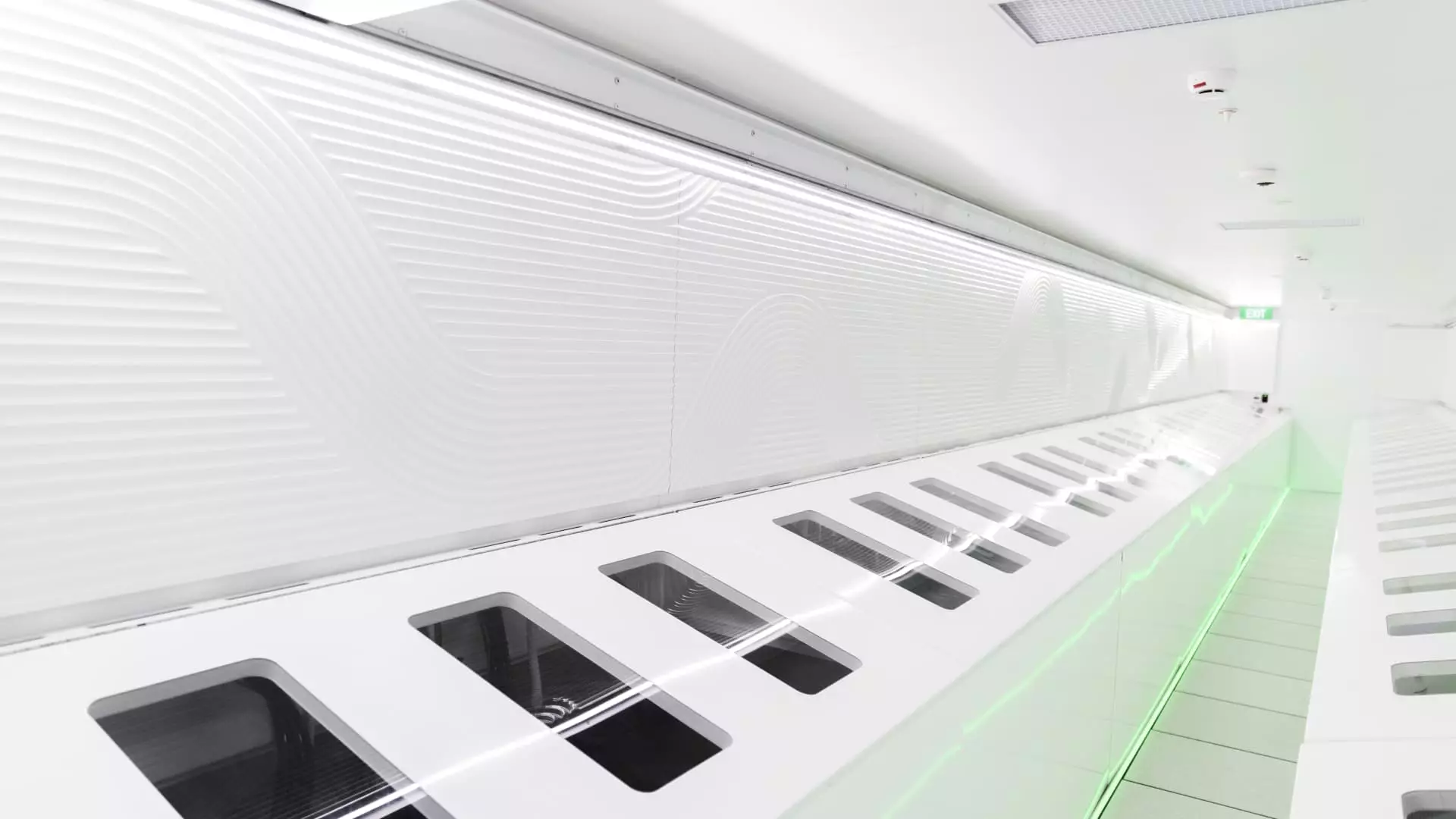As the demand for more powerful processors and energy-efficient data centers continues to rise with the artificial intelligence boom, companies like Sustainable Metal Cloud are leading the way in creating sustainable AI factories. Their innovative approach involves using special HyperCube servers fitted with Nvidia processors that are submerged in a synthetic oil called polyalphaolefin. This unique cooling method draws heat away more efficiently than traditional air cooling, reducing energy consumption by up to 50%.
One of the key advantages of Sustainable Metal Cloud’s platform is its cost-effectiveness. The company stated that its immersion cooling technology is 28% cheaper to install than other liquid-based solutions. This cost savings, combined with the high density hosting capabilities for GPUs, makes their HyperCubes an attractive option for businesses looking to optimize their data center operations.
Sustainable Metal Cloud is not only expanding its operations into markets like Thailand and India but also forging partnerships with major enterprise players like Nvidia and Deloitte. As a preferred cloud partner of Nvidia for compute and AI, SMC offers GPU clusters designed by the chip giant. Additionally, their collaboration with Deloitte allows clients to access Nvidia’s GPU computing infrastructure for building AI applications. These partnerships highlight the growing recognition of SMC’s innovative approach in the industry.
In a world where sustainability and energy efficiency are becoming increasingly important, data centers are under pressure to reduce their environmental impact. Countries like Singapore are pushing for “green” data centers to support AI ambitions, investing significant amounts of money in sustainable technologies. Furthermore, companies like Sustainable Metal Cloud, backed by investors like Temasek-backed ST Telemedia Global Data Centres, are playing a pivotal role in advancing sustainable practices in the industry.
The adoption of liquid cooling technology is gaining traction as data centers seek to improve performance and reduce overheating risks. Liquid cooling offers the potential to pack more servers into existing spaces, increasing efficiency and lowering energy costs. Industry leaders like Vertiv and Supermicro are championing the benefits of liquid cooling, citing improved power efficiency, performance, and lower pollution levels. However, challenges still remain in deploying liquid cooling solutions, requiring data centers to adapt to new technologies and infrastructure requirements.
The rise of artificial intelligence is driving the need for more powerful and energy-efficient data centers. Companies like Sustainable Metal Cloud are at the forefront of this technological revolution, offering sustainable AI factories that reduce energy consumption and costs. With the growing emphasis on sustainability and the adoption of innovative cooling technologies, the future of data centers looks promising. As the industry continues to evolve, embracing new trends and technologies will be crucial in meeting the demands of the digital age.

